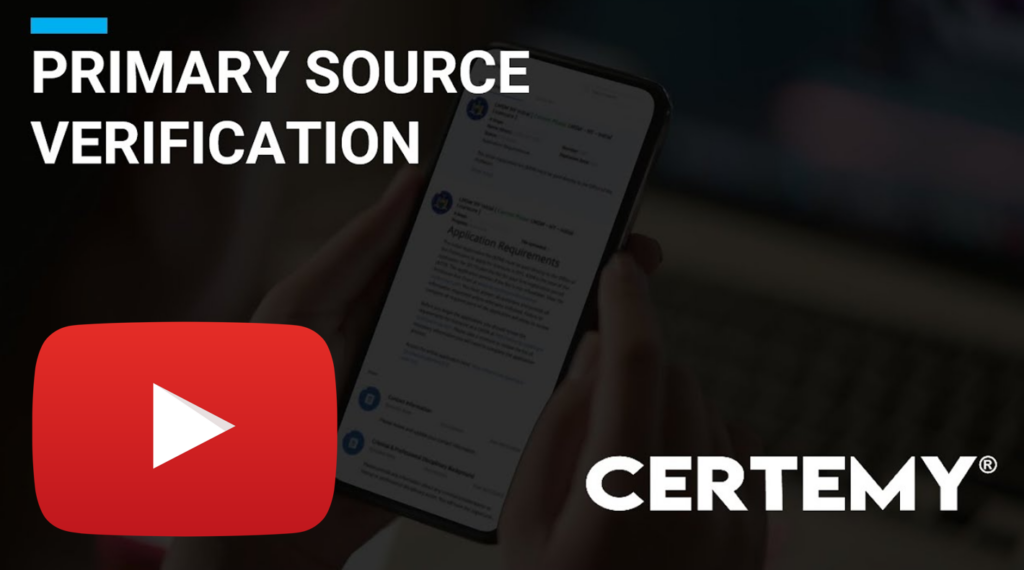
License Verification Tool | ACNP -?Acute Care Nurse Practitioner
One of the most important jobs in the medical field is that of an Acute Care Nurse Practitioner (ACNP). This type of nurse specializes in providing critical and intensive care for patients who are dealing with a wide range of medical problems, from serious injuries to complex medical conditions. An ACNP must be highly knowledgeable about current medical treatments, be able to quickly assess a patient’s condition, and, most importantly, stay up-to-date with any new developments in their field. It is no wonder that the demand for ACNPs is on the rise.
At the same time, many organizations are turning to advanced license Verification methods to ensure only highly qualified ACNPs are employed. Primary source verification provides an increased level of assurance that ACNPs have authentic, up-to-date credentials and that they are ethically compliant. This level of assurance is especially important for health organizations, as the safety of their patients rely on highly trained and certified professionals. Additionally, license verification systems help organizations to mitigate risk and stay ahead of Compliance deadlines for certifications and licensure.In this article, we will discuss the role of ACNPs, the importance of license verification, and the benefits of employing advanced verification solutions for organizations. What is an Acute Care Nurse Practitioner?An acute care nurse practitioner (ACNP) is a licensed, certified healthcare professional who has specialized nursing knowledge and skills to assess, diagnose, and treat their patients with acute, critical, and sometimes complex health conditions. These healthcare professionals work closely with the patient and their family to outline a treatment plan and follow up with the patient for their condition. ACNPs often serve on teams with other healthcare professionals such as doctors, psychiatrists, and nurse practitioners.ACNPs are experienced in the delivery of health care services for the purpose of general healthcare, disease prevention, and health promotion. They are educated in the diagnosis and management of chronic, acute, and critical illnesses, including drug regimens and complex intravenous therapies. ACNPs are also trained and certified in advanced clinical procedures, such as placing intravenous catheters.Why License Verification is NecessaryThe healthcare industry is heavily regulated and requires healthcare professionals to go through rigorous training and have countless hours of clinical practice in order to obtain state licensure and certification as an ACNP. Because of the safety and health requirements required to perform this profession, license verification is essential. It is important to verify that an individual is fully licensed and up-to-date on the necessary certification(s).Employers should take the appropriate steps to verify ACNPs credentials prior to offering them a job. This will ensure that the organization is hiring someone with the right educational background, clinical training, and professional license. Organizations should also have a process in place to ensure that their ACNPs stay current on their certifications and re-certifications, as well as to verify that their ACNPs are free of any disciplinary action by state boards.What Can Automated License Verification Bring?Organizations can take advantage of automation in license verification in order to save time and money. Automated systems can save HR departments from having to manually enter data into forms, as well as validate and track employee licenses. Also, automated systems can more easily detect any discrepancies in license dates, and alert employers about any non-compliances. This functionality helps to ensure that employees are up-to-date and certified as an ACNP. Using an automated license verification system also provides organizations with a variety of features and customizable workflows to automate the entire process. This type of system allows organizations to track employee licenses in real-time, compare regulation changes, and even set triggers for certain license statuses. That way, human resource departments can be sure that they are staying ahead of the necessary compliance requirements. ConclusionAcute Care Nurse Practitioners play an important role in providing effective and efficient health services to individuals. The qualifications of ACNPs must be continually monitored and validated to ensure their continuing education and state certifications remain valid. This is why organizations are implementing automated license verification systems to provide complete visibility and control of their workforce compliance program. Automated license verification systems not only save time for HR departments, but also helps organizations to remain in compliance with regulations and properly utilize their staff.Topics:

